Ed miliband
Friday
Balls in the limelight
The most important political consequence of the leak of the Project Volvo documents is that it reminds everyone in the Labour party of what a divisive figure Ed Balls is. Ever since the leadership contest, where his reputation as a plotter crippled his candidacy, Balls has been trying to soften his image. He has sought to present himself as a more collegiate figure. But this leak is a reminder of how Balls used to operate and why some people in the Labour party will do everything they can to prevent him from becoming leader. We now wait to see what emerges about how these documents made their way into the

Your five-point guide to the Ed Balls files
Intrigue, hilarious intrigue this morning, as the Telegraph releases a bunch of documents that clarify just how far the Brownites went to oust Tony Blair. They are, it is said, from the personal files of Ed Balls, and they are copious in both quantity and variety. From straightforward poll results to 31-page reports on how Brown is a Volvo not a BMW, this is a real insight into the numerous pathologies of party and government. Here’s my five-point overview: i) The leadership coup in waiting. It starts only two months after the 2005 general election, and Balls’ own ascent to Parliament, with a memo setting out the structure of Brown’s

The Plot Against Tony
That Gordon Brown loathed Tony Blair is hardly news. Nevertheless the details and depth of that hatred, revealed in the Daily Telegraph’s scoop today*, remain hilarious. Poor Gordon. His people seem to believe – or have been told – that being compared by focus groups to a Volvo or a British Rover was a good thing. Ed Miliband’s role in all this plotting and absurdity is also worth contemplating. It provides yet another opportunity for the coalition to press home the point that Little Ed’s judgement ain’t up to being Prime Minister. So, Mr Miliband, tell us why you plotted to remove Labour’s most successful Prime Minister and replace him
Wednesday
Even Ed knew he’d lost
Cameron made history today. He gave the Speaker a genuine reason to call PMQs to a halt. Usually Mr Bercow pops up two or three times to shout down shouters and to waste time by ordering time-wasters not to waste time. But today protocol obliged him to stop proceedings. A half-hearted punch-up was in progress over government u-turns and the PM was defending his reforms by referring to his favourite Labour ally, the shadow health secretary. If he quotes John Healey much more often Cameron will owe him royalties. Ed Miliband accused the government of lengthening waiting times by abolishing Labour’s targets and Cameron countered by claiming that the figures
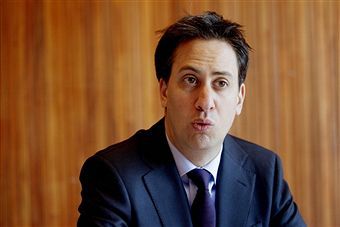

Cameron’s easy ride
Having u-turned on two more policies in the last two days, one would have expected David Cameron to have a hard time today at PMQs. But he didn’t. Ed Miliband never got going, turning in one of his worst PMQs’ performances. Cameron pithily summed up Miliband’s performance when he joked that ‘the best thing that can be said about his performance is he wasn’t thinking about politics on his honeymoon.’ Miliband’s performance today will add to the low-level grumbling about him among some Labour MPs and members of the shadow Cabinet. Miliband has a big speech coming up on Monday and he needs it to deliver a rationale for his
Tuesday
Miliband offers with one hand and stabs with the other
Ed Miliband delivered a speech at the Festival Hall this morning. A couple of strategic issues emerged from it. The first is that Labour has decided that the IMF is wrong: “This Government is going too far and fast, hitting families and making it harder to reduce the deficit.” This is not altogether surprising. Ed Balls’ recent article in the News of the World suggested that Labour will attack on the cost of living and youth unemployment, both of which may serve to slow the rate at which the deficit is reduced. As Fraser noted yesterday, Labour is aided by rising inflation, which is deepening the effect of cuts. However,

Monday
Accentuate the differences
This is an age of ideas, not of ideology. That is the thesis of Amol Rajan’s enthralling overview of the intellectual trends in contemporary British politics, published in today’s Independent. As part of the piece, Rajan has interviewed Maurice Glasman, who gives a far clearer account of ‘Blue Labour’ than he did during his recent comments to the Italian press. Communities must be organised to resist the caprices of capital and the dead-hand of the state. Resist is probably the wrong word because the aim appears to be, in Philip Blond’s celebrated phrase, the ‘recapitalisation of the poor’, which implies some form of empowerment. Rajan notes that Glasman holds a
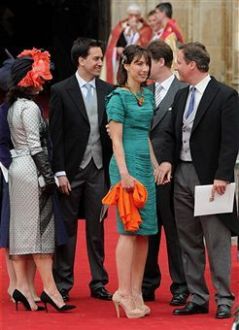
Sunday
The return of the signature parade
Oh dear, we’re back to letter-writing again. 52 academic sorts — including the Labour advisor Richard Grayson and Blue Labour proponent Stuart White — have a letter in today’s Observer urging George Osborne towards a ‘Plan B’ for the economy. They even sketch out, in less than 150 words, what that Plan B might look like. And, strangely enough, it has more than a tinge of Ed Miliband about it, including — and I quote — a green new deal; a focus on targeted industrial policy; the empowerment of workers; “unsqueezing” the incomes of the majority, and so on. I say we’re back to letter-writing again, because it’s all so
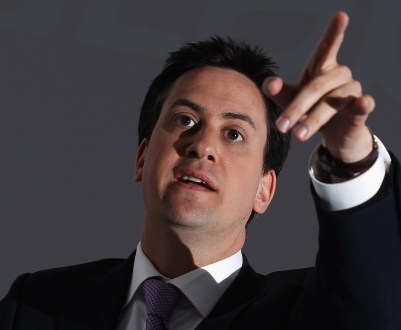
Saturday
Glasman sings the blues
Maurice Glasman, a favoured thinker of Ed Miliband’s, has given an interview to someone called Filippo Sensi who writes for an Italian magazine called Europa. I sound a firm note of caution here because there is a distinct possibility that it’s a spoof. Take Glasman on the etymology of Blue Labour: “There is a sense of bravery and tragedy in our position and that is one meaning of the word blue, that links Miles Davis with Picasso and Aristotle. It is not mentally ill or depressed to feel triste and out of that understanding can flow a deeper understanding of the world and a more durable courage in resisting it than

Thursday
Labour’s malfunctioning front bench
The old adage that it’s hard to make an impact in Opposition is ringing true. Dan Hodges has denigrated Labour’s opposition thus far in the New Statesman’s political column today. He charts the party’s competing interests to create the sense that Miliband’s lack of direction, which is marketed as consensual politics, is the prime cause for Labour’s passivity. A listening exercise and numerous policy reviews are under way, but Labour is still stuck at Robert Frost’s fork in the road. Sooner or later, Miliband will have to act. Without firm leadership, shadow ministers are being left to their own devices; which perhaps allows the coalition to escape misfortune because often
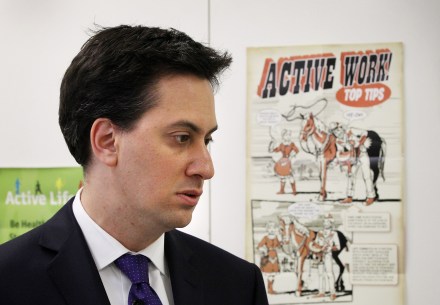
Monday
Why Miliband needs to be more specific — and quick
Ed Miliband owes Coffee House contributor Ed Howker a drink. In his speech today, the Labour leader borrows the central idea — and the title — of the stunningly insightful book that Ed wrote with Shiv Malik last year, Jilted Generation: How Britain Bankrupted its Youth. It is, basically speaking, the idea that the current generation of twenty-somethings is, in many respects, disadvantaged in comparison their baby-boomer forbears. From the burden of dealing with debt, both personal and national, to the fluctuations of the housing and labour markets, young people are up against it. And it may get worse. As Miliband puts it, “I am worried — and every parent

Saturday
Conservative support to collapse at 6pm
This evening, an event will occur that will make all the controversies and scandals of the last week seem somewhat irrelevant — at least according to American evangelical Harold Camping. He says that 6pm today is the time of the Rapture, as foretold in Thessalonians 4:17: all those “true believers” who accept Jesus Christ as their one true saviour will be taken up to heaven. For those of us left, we might wonder who will lead us through the “chaos and awful suffering” following both the loss of 40 per cent of the UK population and the earthquakes that will accompany it. Our Prime Minister — with his “sort of


Miliband’s “national mission” lacks a mission plan
I didn’t expect to be overwhelmed by Ed Miliband’s speech to the Progress Annual Conference today, but neither did I expect to be quite so underwhelmed. This was meant to be his Great Exposition of how, as he put it his introductory remarks, Labour “will win the next election”. But what we got was a straighforward list of some of the major themes of his leadership so far: the “squeezed middle,” the prospects for young people, community breakdown, and so on and so forth. These are all worthwhile areas for debate, but Miliband has dwelt on them before now, and more persuasively — such as in his speech to the

Cable’s latest warnings and provocations
My favourite part of the Guardian’s interview with Vince Cable today? When the business secretary says that his sermonic prescriptions from during the crash are of “enduring relevance” now. But there’s more to the article than self-aggrandisement, not least Cable’s gloomy overview of the British economy. It’s not quite the same as Alastair Darling’s Guardian interview in August 2008, but there is a touch of that here. “I think it is not understood that the British economy has declined by 6 or 7 per cent — it is now 10 per cent below trend,” says Cable, “Britain is no longer one of the world’s price setters. It is painful. It
Friday
Miliband tries to explain himself
As the weekend drifts closer, there is a case that Ed Miliband has just enjoyed his best week as Labour leader. Not really from anything he has done — although his PMQs performance had more vigour than usual — but thanks to the backwash from the Ken Clarke calamity. MiliE’s spinners could barely have dreamed, even a few days ago, that their man would gain the the fiery approval of The Sun on matters of law and order. But that is effectively what they gained yesterday. “Labour is now tougher on crime,” bellowed the paper’s leader column, “than our Tory-led government.” Even today their editorial laments, “so much for David

Wednesday
Cameron faces the barmy army
Ed Miliband came to PMQs hoping to turn the House into a rape crisis centre for the Justice Secretary. Quoting from Ken Clarke’s tricky Radio Five interview earlier he criticised him for distinguishing between ‘serious’ and ‘other categories’ of rape. Would the PM distance himself from his minister? Cameron claimed not to have heard the interview – conveniently enough – and pointed out that the policy is still at the consultation stage. His priority was to correct a system in which all but 6 per cent of reported rapes result in no conviction at all. Miliband plugged away, upping the stakes, widening the issue and claiming to have spotted a
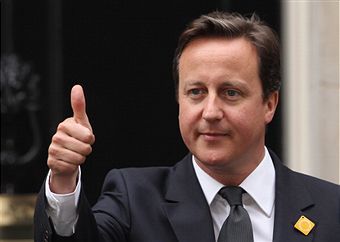

Is Clarke’s fate sealed?
Ken Clarke is in the middle of a media firestorm following his comments on rape. The remarks were typical of Clarke’s dismissive attitude to the victims of crime and Downing Street is clearly furious about them. It has ruled out sacking him, but I suspect that Clarke’s fate is now sealed come the much expected March 2012 reshuffle. Clarke is of the never explain, never apologise school of politics. But Number 10 clearly want him to ‘clarify’ his remarks. I suspect that Clarke, who has been busily defending his comments, will not want to do that. This could well be the cause of the next row between Clarke and the
PMQs live blog | 18 May 2011
VERDICT: That was probably the most straightforward PMQs that Ed Miliband will ever experience. Thanks to Ken Clarke, the Labour leader had several shots into an open goal — and most were excuted efficiently, if not skilfully. Cameron was left in an unforgiving position, and he just about hung in there, eventually mustering some sort of defence and then turning it around to Labour’s mismanagement of the criminal justice system. It was an intriguing exchange, not least because it presaged what could become a major problem for the Tories — their crime and justice policy — and how Labour might exploit it. And it was all supplemented by a set
Saturday
The man who hopes to win English votes for Labour
Maurice Glasman and Ed Miliband do not think as one. But Miliband’s Favourite Thinker™ is an undoubted influence on the Labour party — and, as such, it’s worth tuning into his ideas from time to time, if you have a tolerance for such things. Glasman’s “Blue Labour” philosophy has already enjoyed heavy exposure this year, and he has an interview in today’s Times (£) to explain it even further. If you’re not minded to buy, borrow or steal a copy of the Thunderer, then here are a few observations. First, it’s striking just how much Glasman dwells on the personal. “If you want to know everything that was wrong about


